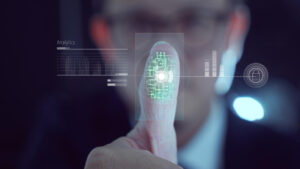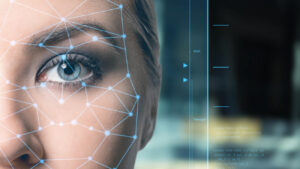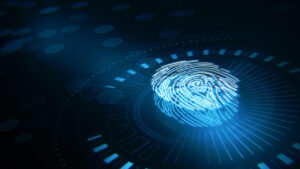Traditional centralized systems continue to be compromised stated Bahaa Abdul Hadi. Series of security breaches and fraud have taken place in connection with direct user authentication by third-party authorities. In the decentralized identity model, users retrieve control over their own personal data, guaranteeing that only they can access or disclose it. Not only does this promote security but it also enables users to retain their privacy entirely independent of centralized organizations.
The Role of Biometrics in Decentralized Identity
Biometric authentication adds a further layer of protection to decentralized identity systems. Biometric signatures, such as fingerprints, facial recognition, voice patterns and iris scans, are unique to each individual, making them difficult to duplicate or steal.
Integrating biometrics with blockchain technology, users can verify their own identity without revealing any significant information about themselves, giving the benefit of enhanced privacy and security.
Biometric data can be stored on the blockchain in a form where it remains immutable and permanent. This is more secure because it prevents illegal access to personal data. Also, because the data is decentralized, there is no central database for hackers to hack and steal identities from.
How Blockchain Enhances Security and Privacy
Blockchain, having its origins in decentralized management and security, is ideally suited to serving as the basis of decentralized identity systems. With blockchain, the user has full control over his or her personal data. Here’s how it enhances security and privacy:
- Immutability: Once data is put onto a blockchain, it can never be altered or erased. This is how personal information stays safe and unmodified.
- Decentralization: With blockchain, there is no need for a central authority to administer personal information. This cuts out the single point of failure and lowers the probability of data breaches or illegal access to what is held on the blockchain.
- Transparency and Trust: Blockchain ensures that all transactions are open for anyone to check while keeping personal information private.
Decentralized Identity and Biometrics Applications
Applications of these systems are only starting in various areas and situations, such as now that they can reveal invisible things for us to see:
- Healthcare – Decentralized identities could give privacy back to patients and allow them in control of sharing their medical data with health care providers. Biometrics can be used to check their identity, stamping out fraud and making sure the right member is attended to by whomsoever.
- Financial Services – In banking and securities, decentralized identity can confirm itself through digital transactions without using passwords or physical materials. Biometrics offer a secure, convenient way for ID checks, reducing the danger of fraud or identity theft.
The Future of Decentralized Identity and Biometrics
But as digital identities become ever more integral to our daily life, the coming together of blockchain and biometrics will have a crucial role in determining what shapes online security in future times.
Centering on user privacy, control and detecting errors, in new ways that will be both more secure and more convenient than before decentralized identity systems with biometrics can provide a better authentication world altogether.
However, there are still difficulties ahead. Regulatory frameworks need to keep pace with this new technology to ensure that decentralized identity systems are safe, fair, and easy for users to work with. The scalability of blockchain and the standardization of biometric data formats also need further study in order for them to be fruitful.
Conclusion
Decentralized identity systems, blockchain technology and biometric verification provide a potentially practicable route to meeting this increasing demand for secure, privacy-focused management of one’s own identity. These technologies allow users to own their personal data, zap the risks associated with centralization, avoid fraud, bump up security and improve privacy in a digital world increasingly reliant on the internet. The article has been written by Bahaa Abdul Hadi and is published by the editorial board of Identity Herald. For more information, please visit www.identityherald.com.




